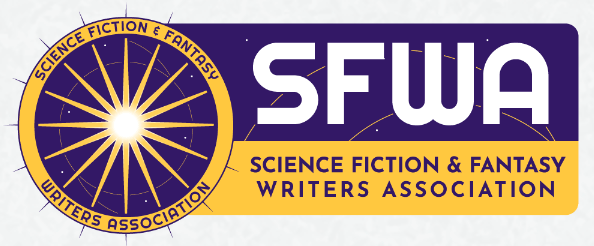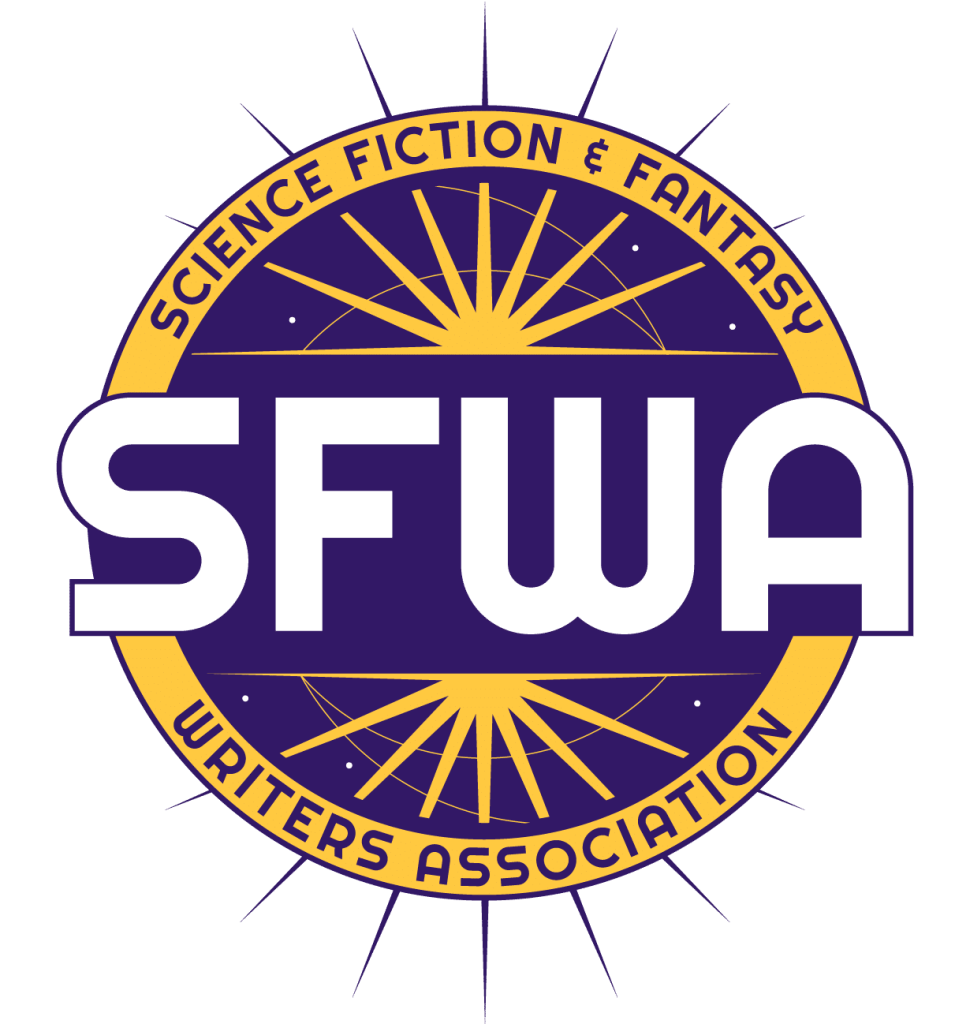Why SFF Mentorships Matter
What do James A. Corey, George RR Martin, and Mary Robinette Kowal have in common? Like thousands of their peers, each had a mentor help them navigate the wild world of publishing in some way, shape, or form. For newcomers, that type of support can prove to be the difference between success and failure. Because, lets face it: there have always been plenty of pitfalls and scams waiting to ensnare the next talented writer.
That support can involve a writing teacher offering key insight or a best-seller giving time and tips to an up-and-comer. No matter the genre, mentors remain as important today as it was decades ago. Among the more renowned programs that facilitate such an exchange is the Science Fiction Writer’s Association’s (SFWA) Mentorship Program.
Mere months ago, I had the opportunity to participate as a mentee in SFWA’s program myself. Here’s what made the experience, and the work of so many writers behind the scenes, so special.
Andrea Pawley may be the most recognizable member of SFWA’s Mentorship Program but she’ll be the first to tell you about the remarkable team she works with. That hasn’t stopped her from being a bearer of good news for the hundreds (perhaps even thousands) of hopefuls who apply every year.
“I have to emphasize that this is truly a team effort. I’m the face of the program and often people think I’ve done the matches,” Pawley told me during our interview.
As humble as she is, the sentiment rings true: for the hundreds (perhaps even thousands) of hopefuls who apply every year to enter the program, hers is the name that will welcome the lucky few who are chosen. Those writers are paired with mentors and together, its hoped, questions will be answered and peer-to-peer contacts made.
“I think these mentorships can be fundamental to the progression of a writer’s career,” Pawley stated. “Assuming of course you get a good match and both the mentor and mentee put an effort into it which I think is the case most of the time.”
It certainly was the case with me.
My Journey Begins
I became aware of SFWA’s mentorship program courtesy of an email sent to me toward the end of 2023. A favorite professor of mine knew I took writing Fiction seriously and suggested I give it a go. Two years passed before I received that auspicious confirmation from Pawley, two years of ‘learning the hard way’.
There are innumerable pitfalls the world of publishing will throw at you, many of which most college or university courses won’t prepare you for. I don’t mean just scam publishers or bad contracts but the travails of querying agents, protecting your work, and most importantly: how to continue growing as an artist. Rejection letters and cautionary tales passed down the grapevine will only take you so far. There comes a time when the experience of someone who has been there, done that, and succeeded is required.
SFWA Mentorship Program was inspired to do that and more, one of many reasons I was elated to be selected for the May-June 2025 round. It was like getting an acceptance letter, a feeling that doubled when I learned I’d been paired with Filip Hajdar Drnovšek Zorko.
A quick glance at his publication history told me he was the real deal. The man’s work has appeared in some of the publication’s I dreamed of getting into. He knew what the agenting process was like as well as this wonderful genre we call SFF inside-out.
It took hard-work. Simply having someone willing to give you their time isn’t enough. Mentees have to buy in and put in the work too. You’re not going into the hyperbolic time chamber and reemerging ready to take on the world moments later. Far from it. Rather, it’s the time-skip readers don’t see, the one that proves pivotal in your personal hero’s journey future.
And without folks like Pawley and her colleagues Julia Rios, Sarah Pinsker, and A.T. Greenblatt, none of it would be possible for writers like myself. Which begs the question: what fuels the people behind the scenes who make this happen multiple times a year?
The People That Make it Happen and the Lessons Learned
“My earliest sci-fi memory is a trip to the drive-inn movies to see Star Wars when I was very young. It was really, really cool,” Pawley tells me during our interview.
Her life-long fascination with science fiction began in a galaxy far, far away. It’s a story many of us can empathize with. From Tatooine she moved on to titles that were available where she lived, namely, the works of Frank Herbert and Isaac Asimov.
She said, “When I was a kid there was really no science fiction section. It was really hard to find science fiction authors so the first books that I read were the I, Robot books by Isaac Asimov, Dune by Frank Herbert, and of course the Foundation series.”
Speaking over Zoom, she happily reveals that those precious first books adorn the shelves of her office. In addition to her service with SFWA, its one of many things that makes her ideal for her role in the mentorship program. Pawley has been a member of SFWA for around 10 years. Her work has appeared in places such as Clarkesworld and Cosmic Horror Monthly. The years have seen her cycle through a variety of positions ranging from volunteer coordinator to bookkeepers’ assistant. She joined the Mentorship Program team in 2023.
“I’ve been associated with SFWA for about a decade. It feels longer though, so much has happened,” Pawley explains with a laugh.
Pawley was quick to share her concern over participants in the program not giving their all. Having been paired with the super accessible and always helpful Zorko, I couldn’t imagine anyone not putting in the effort required to make the most of such an opportunity. But I have heard of it happening and it just goes to show that raw, even refined talent, isn’t always everything. Drive and passion are important too.
“In my mind it is not so much about the text that you are writing but more about connecting with other people. As writers you have highs and lows and some writers probably feel they have more lows than highs. It’s important to know there are other people out there who are wonderful that you can turn to for help,” Pawley shared.
She makes a point that practically every writer, regardless of genre, understands to some extent. A support base of some kind is always important.
“The idea of a community of writers is really important and there are definitely big communities out there. But a lot of writing happens in private and the mentorship program offers you a sense of community on a smaller level where you can connect with at least one other person,” Pawley said.
Emphasis on the community of writers has been central to SFF for decades. It has helped many talents break through and champion the continued evolution of both genres.
Pawley noted, “For writers that can be a lifeline because of how easy it is to be discouraged with a lot of the stuff going right now such as AI, copyright, and intellectual rights. Writing is already hard for a lot of people. That is why the program can be vital so long as people are able to give themselves to it.”
It’s true as I learned from firsthand experience. Sometimes the obstacles are so numerous and hit so hard and so fast it can be a little disheartening. That’s where leaning on the support of peers and experienced writers come in. While not easy it is certainly worth it. And thanks to a lot of man-hours, it remains accessible.
Learn more about the SFWA Mentorship Program at the SFWA website.
Ismail D. Soldan’s last article for Black Gate was 9 Short Stories That Deserve More Love. He is an author, journalist, and poet. His work has previously appeared in Illustrated Worlds, LatineLit, and The Acentos Review among other publications. A proud explorer of both real and imagined worlds, some of his latest published work include The Right Kind of Royalty (on swordsandsorcerymagazine.com) and Heavenfall (in JR Handley Presents: Contested Landing Volume 2).


